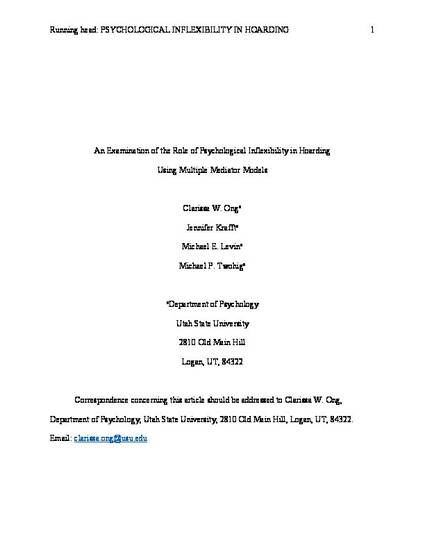
Hoarding is associated with functional impairment and impacts quality of life. One process that has been theorized to explain how hoarding develops and leads to impairment is psychological inflexibility, in which behavior is rigidly controlled by a perceived need to regulate internal experiences, at the expense of more effective, valued actions. The present study aimed to test the mediational role of psychological inflexibility in the development of hoarding and its impact on life satisfaction with a sample of 489 college students completing an online survey. Results indicated that multiple measures of psychological inflexibility (overall inflexibility, inattention, and values obstruction) mediated the relationship between distress and hoarding. Other measures of psychological inflexibility (overall inflexibility, cognitive fusion, and lack of values progress) mediated the link between hoarding severity and life satisfaction. These findings suggest that how one responds to distress and hoarding symptoms can influence symptom severity and life satisfaction, and that psychological flexibility may promote more adaptive outcomes. Thus, current interventions for problematic hoarding may be strengthened by targeting psychological inflexibility and related processes.
Available at: http://works.bepress.com/michael-levin/20/
